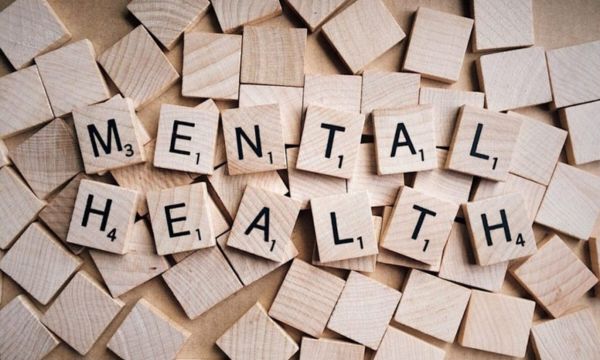Demystifying the Menstrual Cycle: What You Need to Know
The menstrual cycle is a normal biological process that most women experience from puberty to menopause. Although it is common, many myths, misconceptions and stigmas persist. In this detailed guide, we hope to unravel the monthly cycle and tell women and those who care about them what they need to know.
Learn the Basics:
The menstrual cycle is a series of changes a woman’s body goes through each month in preparation for a possible baby. Usually it takes about 28 days, but this is subject to change. Here is an overview of the important parts:
1. Menstruation
Menstruation or menstruation is the first part of the cycle. During this time, the lining of the uterus sheds, causing bleeding. Normally this takes 3 to 7 days. People often think of menstruation as dirty or unclean, but it is actually a normal and healthy process.
2. Hair Growth Phase
After menstruation ends, the follicular phase begins. Estrogen and luteinizing hormone (LH) levels rise, commanding the ovaries to produce eggs. One dominant cell grows and matures, while others are reabsorbed.
3. Eat An Egg
Ovulation is caused by a surge of LH in the middle of the cycle, day 14 of a 28-day cycle. When the egg matures, the ovary releases it so that the sperm can fertilize it. This is the best time for women to get pregnant.
4. Luteal Phase
The luteal phase begins after ovulation. The empty follicle turns into a corpus luteum and releases progesterone, which prepares the uterus for possible childbirth. If the egg is not fertilized, progesterone levels drop, causing the next menstrual period.
Busting Common Myths:
Myth 1: Periods are Gross
Menstruation is a normal part of the female body. It’s not dirty or bad. In many societies this is a major problem and a sign of growth.
Myth 2: The Menstrual Cycle of All Women Lasts 28 Days
Although the average cycle lasts 28 days, cycles can last 21 to 35 days and still be normal.
Myth 3: It is Impossible to get Pregnant during Your Period
Although unlikely, you can still get pregnant during your period, especially if your cycle is shorter.
Myth 4: Severe Pain is Normal
Period pain is normal, but if it is severe it could be a sign of a problem such as endometriosis or uterine fibroids. If you have severe pain you should discuss this with your doctor or nurse.
Tips for a Healthy Period:
- Drinking Water: Drinking plenty of water can help relieve bloating and other pain.
- Balanced Diet: It is easier to control symptoms if you eat a healthy diet that provides enough iron and other nutrients.
- Regular Exercise: Physical exercise can relieve cramps and make you feel better.
- Deal with Stress: Worrying can worsen menstrual complaints. Try yoga or meditation to help you calm down.
- Getting Medical Help: If you have irregular periods, severe pain or heavy bleeding, you should see your doctor.
Accept New Perspectives:
For hundreds of years, menstruation was viewed with fear, shame and even superstition in many countries. But as we enter the 21st century, more and more people are trying to change these ideas. Here are some good ways to look at things:
1. Equal Menstrual Rights
Advocates work to ensure that people who menstruate have access to safe, affordable menstrual products. As part of the fight for menstrual equality, efforts are being made to abolish the ‘pink tax’ (higher prices for women’s products) and get free or cheap menstrual products into schools, workplaces and public spaces.
2. Motivation Over Time
The period positivity trend encourages people to talk about their periods honestly. It emphasizes menstruation as a healthy and normal process and attempts to remove the stigma associated with it. Art, education and social media efforts have all played a role in this change.
3. Menstruation Continues
The shift towards eco-friendly menstrual products such as cloth sanitary pads and moon cups is another important trend. Not only are these options better for the planet, they are also cheaper in the long run.
4. Menstrual Education
A growing number of comprehensive sex education programs teach about the menstrual cycle. This class helps young people understand their bodies and make informed decisions. As a result, menstruation is no longer a taboo subject.
5. Improve Women’s Health
It’s important to give women the tools they need to take control of their sexual health. Polycystic ovarian syndrome (PCOS) and endometriosis are becoming increasingly talked about, and women are getting regular checkups and talking about contraceptive options.
Breaking the Silence:
The lull around the menstrual cycle is one of those things that is hard to explain. It’s important to encourage open conversations about menstruation. This means discussing any concerns or questions you have with your friends, family, and healthcare professionals.
Educational programs, online forums, and support groups can also be helpful. Women and people who menstruate can talk about their stories and offer advice to help others feel more comfortable with this natural process.
Conclusion:
Demystifying the menstrual cycle is more than just busting myths; it also helps women gain a healthy and happy perspective on something that is important to their health. By accepting menstruation as a normal part of life and working to educate and improve knowledge about menstruation, society becomes more fair and open to all.
By helping women understand and have open discussions about their menstrual cycles, we empower them to make evidence-based decisions about reproductive health. Let’s work together to make menstruation less of a mystery and more of a topic that requires knowledge, understanding and support.
FAQs:
1. What is the menstrual cycle?
The menstrual cycle is a natural process that women and people with a uterus go through every month and usually lasts about 28 days, but there are variations. These are changes in the body that prepare it for a possible pregnancy.
2. What is menstruation?
Menstruation, commonly known as menstruation, is the stage in the menstrual cycle when the uterine lining sheds, causing vaginal bleeding. It usually takes 3-7 days.
3. Is it normal for the length of the menstrual cycle to differ?
Yes, it is completely normal for your menstrual cycle to vary in length. Although the average cycle lasts about 28 days, cycles can range from 21 to 35 days and are still considered normal.
4. When is the most fertile time in the menstrual cycle?
The most fertile time to get pregnant is during ovulation, which usually occurs midway through the menstrual cycle, usually on day 14 of a 28-day cycle. During this time, mature eggs are released from the ovaries and can be fertilized by sperm.
5. Can I get pregnant during menstruation?
Although the chances are lower, it is still possible to get pregnant during your period, especially if you have a shorter menstrual cycle. Sperm can survive in the body for several days, so it is not impossible.
 Understanding Women’s Health: A Comprehensive Guide
Understanding Women’s Health: A Comprehensive Guide
Women’s health is a vast and complex topic that encompasses physical, emotional, and social well-being. It is […]
More Your Pregnancy Journey: From Conception to Birth
Your Pregnancy Journey: From Conception to Birth
Bringing a baby into this world is a beautiful and life-changing event. Your pregnancy journey is unique […]
More Women’s Mental Health: Nurturing Well-Being in Every Season of Life
Women’s Mental Health: Nurturing Well-Being in Every Season of Life
In today’s fast-paced world, the importance of mental health cannot be overstated. Women in particular face issues […]
More